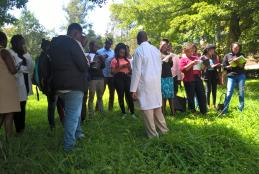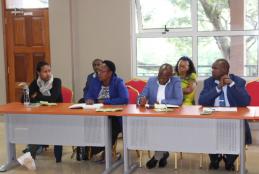RANKING WEB OF UNIVERSITIES: UNIVERSITY OF NAIROBI AMONG BEST IN AFRICA
Current polls of January 2020 on higher learning institutions ranking puts Kenya in 3rd position in Africa as home for one of the best University to study in. This is the University of Nairobi after other Universities in South Africa and Egypt. The prestigious University also tops the list of best University in East Africa. Let’s all work toward "Unitate et Labore" Read more


